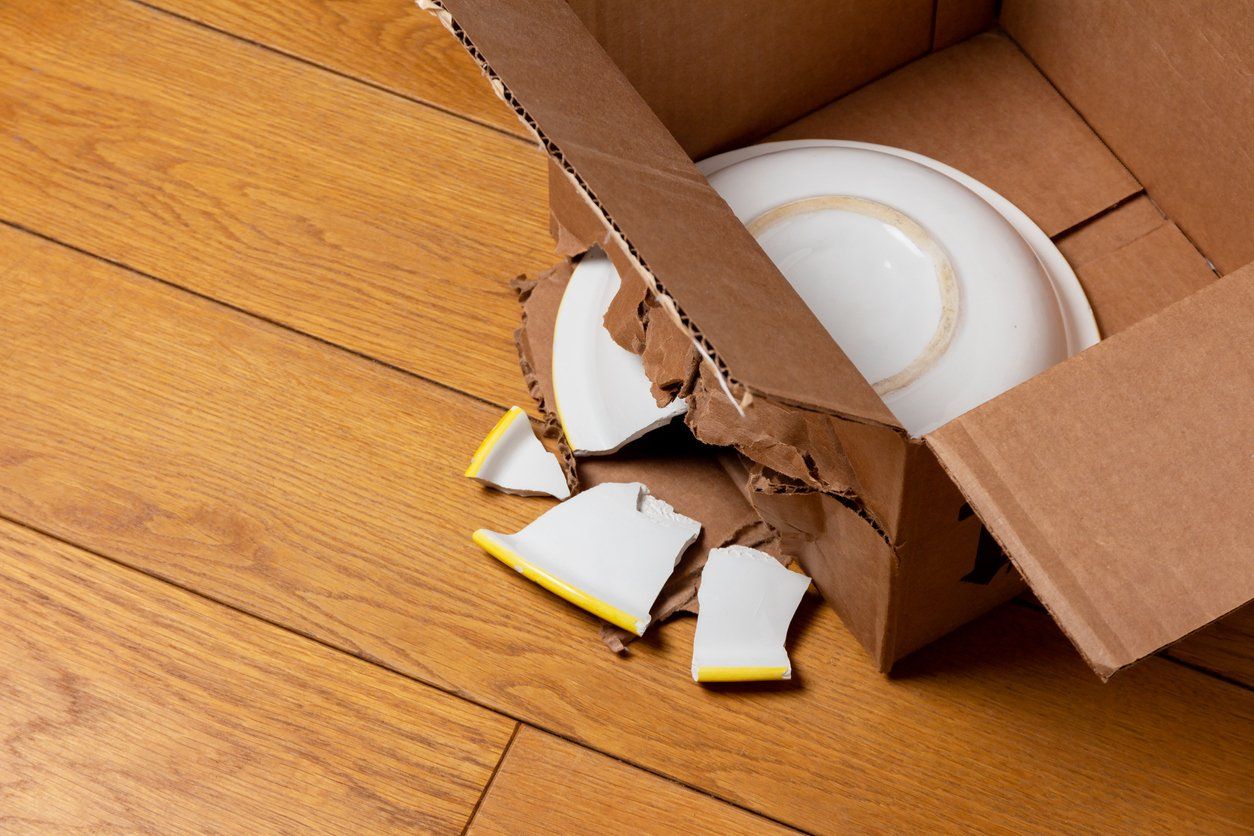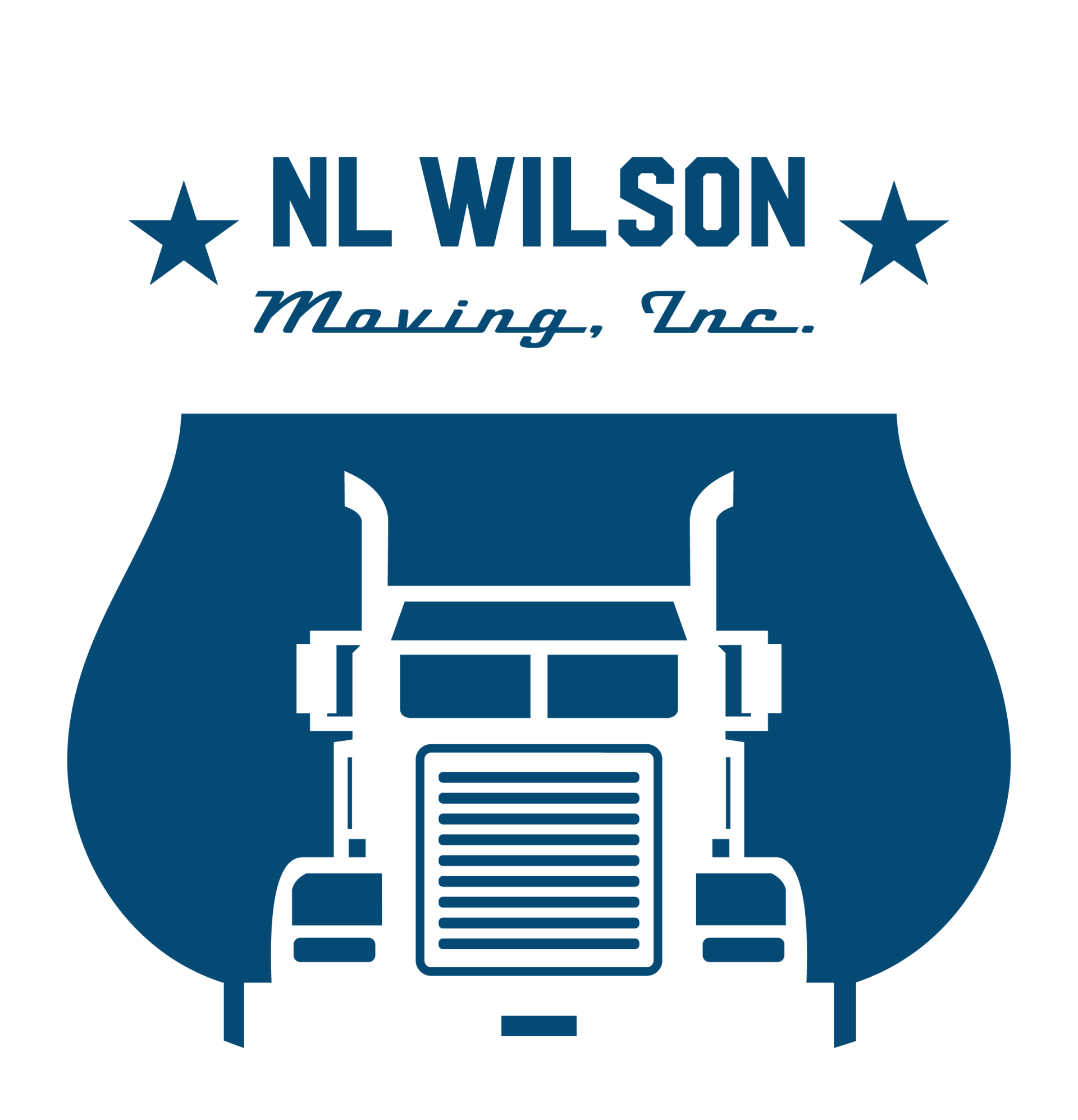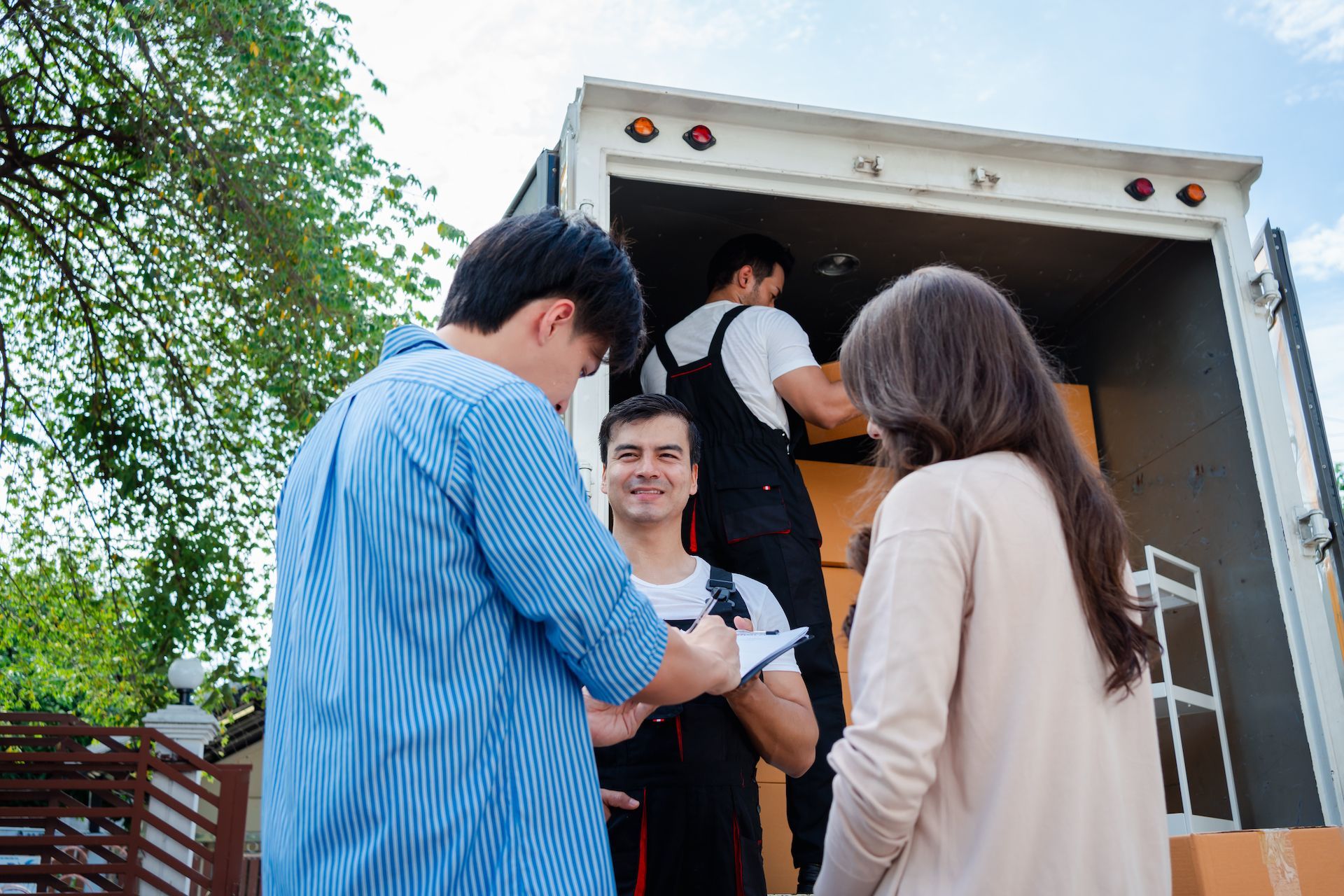Who Is Responsible for Damage When You Move?
June 24, 2022
When you read about the moving process, especially in reviews, it seems to be fraught with potential dangers. You have to worry about movers creating damage to your belongings or your home, breaking things, or losing them in transit. Even the price sounds scary: Moving companies charge by the hour, and it can add up fast depending on whether you're moving to the other side of Kansas City or the other side of the country and how many helpers you need.
Fortunately, there are several resources available to learn more about moving before signing that contract and making an informed decision. These tips will help debunk common myths about movers and damages, so you can focus on what matters most when moving.

The Truth About Moving and Damages
In theory, moving should be one of the safest ways to transport your belongings. Movers have insurance. They pack the items with care and use the appropriate materials. The most risk of damage occurring is when people move their belongings themselves. If you hire a professional mover, you can rest assured your items will be transported safely. Movers are typically well-trained in how to pack and move your belongings without damage carefully but efficiently. When damage does occur, it is often due to things like improper packing, not cleaning the move-in space, or even simple accidents. Therefore, it's important to follow a few simple best practices to ensure your move goes smoothly.
When Are Movers Responsible for Damage?
It might seem simple: If it wasn't damaged before the move and is damaged after, it's the movers' fault, right? Not quite. There are a few factors that can mean the movers are not liable for the damage or that their liability is reduced. Here are the best ways to ensure that you're made whole if damage occurs:
Properly pack your possessions
If you choose to pack your own boxes and you don't protect the items inside properly, such as wrapping dishes individually and putting fragile items in smaller boxes with other properly wrapped fragile items, your movers are not responsible for the damage. Make sure that you pack things with plenty of cushioning, fill boxes so they're full but not bulging, and with heavier items on the bottom and lighter ones on top. You can also have the movers pack everything, which both ensures that things are properly packed and puts liability for damage on them.
Don't include prohibited items
Including perishable food items can invite pests and rodents that may damage your belongings. Movers would not be responsible for this damage. Throw away any perishable food items, open nonperishable food, and make sure all packed dishes are clean of any food residue.
Federal law prohibits including dangerous or hazardous materials when you move without telling your mover. If you include items of this kind without informing your mover, they are not responsible for any resulting damage. Tell your mover about any dangerous or hazardous materials or save yourself the trouble and money by giving them away and buying new ones once you've completed the move.
Opt for the more expensive Full Protection Valuation
When you hire movers, you're given two valuation options:
- Full Protection: The more expensive option is also the most comprehensive. This option means that if movers damage an item, they must either pay for the repairs, pay you for the repairs, or pay to replace the damaged item if it cannot be repaired. This means if you have a $1,000 stereo that weighs 10 pounds and is damaged, you must either pay repair costs to fix it or pay $1,000 for a new one.
- Waiver of Full Protection: This no-cost option appeals to many because it's free. It reduces the movers' liability to $.60 per pound per article. In other words, your $1,000, a 10-pound stereo that is damaged will only get you $60 from the mover.
While the Waiver of Full Protection doesn't mean the mover isn't liable for damage, it does mean that the amount you'll recover for damages is much less than you will probably pay to repair or replace the item.
Don't declare a lower value for your shipment
If you have very valuable items, you might choose to declare the value of your shipment instead of using the weight to determine its value. If you do this, though, it's important that you not declare the value as being lower than it is. The value you declare is all your mover will need to pay if problems arise, so make sure your declared value is accurate.
Notify your mover of high-value items
Items that are valued at more than $100 per pound (such as jewelry, expensive paintings, etc.) need to be put in writing for your mover. If you don't notify your mover in writing of these items and they are damaged, your mover won't be liable for paying more than $100 per pound. If you do notify the mover in writing, then you'll be entitled to full recovery up to the declared value of the item if it doesn't exceed the declared value of the entire shipment.
Are There Other Situations When Movers Aren't Liable?
When you hire fully insured movers and get the full protection of your belongings, properly pack everything, declare the value of your shipment, and notify the movers of high-value items, your movers will pay for anything that they damage or lose.
It's undeniable that's a rather expensive option. That expense is probably the biggest reason why people often opt to rent a moving truck and do it themselves. They might also gather family and friends and their personal vehicles to help with the price of some pizza and beer.
When you rent a moving truck to do it yourself or rely on friends and family, you take on sole responsibility for all damage. Unless your friends or family are very kind and generous, they're not going to offer to repair or replace an item they damage or lose in the moving process.
You also might be tempted by the cheap prices of an unlicensed mover. However, those cheap prices come with some significant risks:
- Unsafe moving trucks
- Potential for theft
- Extortion (holding your belongings hostage until you pay more money)
You can avoid using an unlicensed mover by checking the Federal Motor Carrier Safety Administration's Mover Database.
Tips for a Smooth Moving Experience
While there are parts of the moving process that you can't control, there are several parts you can. If you handle those parts well, you'll help create a much smoother moving experience for yourself and reduce the risk of damaged or missing items. Try these tips:
- Get Organized: Start the packing process early, so you don't have to rush things at the last minute. We recommend you begin packing four weeks before moving day. Label your boxes clearly, so you know what's in each one.
- Pack all the items you can beforehand: This will make the day of the move less stressful. Consider hiring an organizer to help you get the best out of your time.
- Pack a Moving Bag: This should include items you'll need for moving day (such as keys to the new house) and clothing or other items you might need in the first couple of days after you move. This gives you some breathing room if you aren't able to start unpacking right away.
- Be Mindful of Your Surroundings: Moving is a stressful process, and things can get heated between people. Make sure people are taking care not to break anything, and keep calm when possible. Moving is a great time to practice mindfulness and stay in the moment.
- Keep Hydrated: Stay hydrated while working, especially if it's hot outside. It's easy to get dehydrated while working hard and sweating, so keep a bottle of water nearby.
Final Words
The bottom line is that moving is a major undertaking and can be very expensive. While moving is not inherently dangerous, accidents do occur, and sometimes they result in damage to property. Hiring a moving company will protect your property from damages during a move, whether it's just across Kansas City, across the state, or across the country. While they charge more than your friends and family or an unlicensed mover, they're likely to be more careful with your belongings and ultimately more reliable in the long run.








